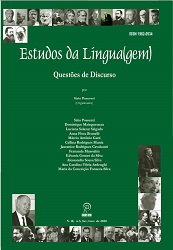How not to be "pigeonholed"; the entrepreneurial ethos
DOI:
https://doi.org/10.22481/el.v18i3.7942Keywords:
Collective ethos; "Entrepreneurial spirit"; Incorporation.Abstract
From a discourse analysis perspective, this article addresses a collective ethos that is particularly important in the contemporary world: the "entrepreneurial" ethos that is supposed to animate the most prestigious and dynamic actors of the economy, especially those working in the world of start-ups. The presentation is based on the study of three texts (a daily newspaper, an advertisement for a school, a magazine for executives) which are part of the media representation of this ethos and whose target audience belongs to the business world. The analysis is based on the English term "pigeonholed", which characterizes the anti-ethos that the good entrepreneur must reject at all costs. It is based on the prescriptive discourse of management consulting professionals, who shape the discourse shared by all the players in this world. The study leads to a reflection on the affinities between religious and economic discourse with regard to the incorporation of ethos.
Downloads
References
BONI-LE GOFF, Isabel. “Ni un homme, ni une femme, mais un consultant.” Régimes de genre dans l’espace du conseil en management. Travail et Emploi, n. 132, p. 21-34, 2012.
BONI-LE GOFF, Isabel, Des expertes respectables? Esthétique vestimentaire et production de la confiance, Travail, genre et sociétés, n. 41, p. 67-86, 2019. Disponible en: https://www.cairn.info/revue-travail-genre-et-societes-2019-1-page-67.
DENIS, Delphine. La muse galante. Paris: Honoré Champion, 2000.
FUSULIER, Bernard. Le concept d’éthos. Recherches sociologiques et anthropologiques, v. 42, n. 1, p. 97-109, 2011. Disponible en: http://journals.openedition.org/rsa/661 ; consulté le 04 avril 2020.
KLEIBER, Georges. La sémantique du prototype. Paris: PUF, 1990.
MAINGUENEAU, Dominique, 1984, Genèses du discours. Liège, Mardaga, 1984.
MAINGUENEAU, Dominique. Ethos, scénographie, incorporation. In: AMOSSY, R. (éd). Images de soi dans le discours, La construction de l’ethos. Lausanne: Delachaux et Niestlé, 1999. p.75-101.
ROSSETTE-CRAKE, Fiona. Public Speaking and the New Oratory. Palgrave, 2019.
VIALA, Alain. L'esthétique galante. Paris : Société des littératures classiques, 1990.
WEBER, Max. [1904-1905]. l'Ethique protestante et l'esprit du capitalisme, trad. fr. Paris: Plon, 1964.
Downloads
Published
Issue
Section
License
Copyright (c) 2020 Language Studies

This work is licensed under a Creative Commons Attribution 4.0 International License.

Estudos da Língua(gem) is licensed under a Creative Commons Attribution 4.0 International License.
Authors who publish in the journal Estudos da Língua (gem) agree with the following terms:
The journal Estudos de Língua(gem) maintains the copyrights of the contributions published. These rights include the publication of the contribution and make its content available for free through the portal.













